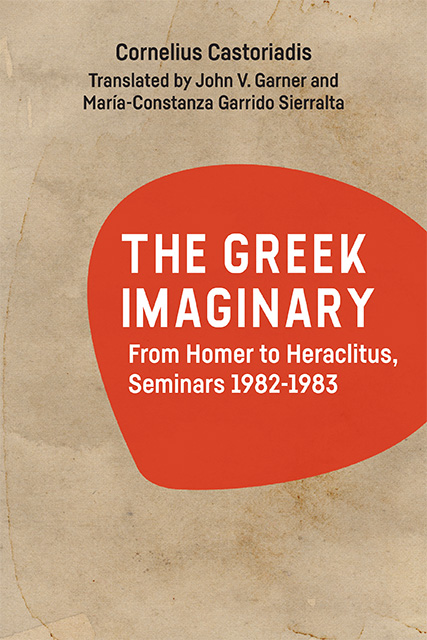V - Seminar from December 15, 1982
Published online by Cambridge University Press: 20 October 2023
Summary
I’ll remind you of our approach. It’s through our search for the roots or first elements of what we may call the Greek grasp of the world that we’re interested in the Homeric poems. In our inquiry we thus inevitably consider what came afterwards. It’s a tautology, if you will, but it has its importance; we need not conceal the fact that this is an attitude filled with dangers. Consider the example of the beginnings of a critique of the heroic world in Homer, in particular in the famous dialogue, or rather yelling match, between Odysseus and Thersites in Book II of the Iliad, a one-way yelling match, for that matter. Thersites is a man of the people; he’s truly the representative of the anonymous mass explicitly devalorized by Homer, including in his appearance: he’s very ugly, he’s squinting, he limps, and so on. He castigates Agamemnon, criticizes the conduct of the war and the war itself. We could say that we have here, perhaps, the first document written in which the exploited classes try to transform an imperialist war into a civil war, as one will later say (I’m only half joking). And it’s Odysseus, filled with arrogance, who responds to him, who insults him, who strikes him with his skēptron, which is the insignia of royal power held by the one who is addressing other heroes. Thersites cannot—dares not—reply; he weeps from sadness while the masses laugh in a cowardly way at the spectacle of this poor simpleton. We see here an extremely entrenched opposition, and a dividing line in value, between the heroes and the profanum vulgus, the polloi, or as one will say later on, the ochlos, the dēmos (this term in Homer doesn’t have the sense it will carry later on); only the heroes truly exist, and the others are just the mass that follows along. Here, there’s an aristocratic conception of the world—very obvious and very important in the poems—which will certainly survive subsequently.
- Type
- Chapter
- Information
- The Greek ImaginaryFrom Homer to Heraclitus, Seminars 1982-1983, pp. 79 - 96Publisher: Edinburgh University PressPrint publication year: 2023



